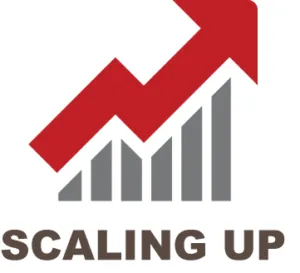
What do I mean by this?
Imagine a developer came in to Hive and built a very successful porn app. Imagine this porn app was so profitable and so popular that essentially the app bent Hive to its will; perhaps bent Hive over is a better term in this context.
What happens then?
The app takes 99% of Hive's bandwidth. Most people do not realize that Hive has a max blocksize of 65KB. That's 65KB... every three seconds... for the ENTIRE network (~22KB/sec). That's basically running the entire network on 56k modem speeds, and we call this "scalable". Pretty funny.
Literally anyone who makes a popular app on Hive is going to bring this network to its knees (another accidental porn reference?). 65KB is nothing, and if you think we can just "increase the blocksize" then you don't understand what that actually means. Splinterlands adoption has already torn API nodes a new asshole once or twice and the blocks aren't even filled up yet. Spoiler alert: an API node bottleneck has absolutely nothing to do with on-chain bandwidth or resource credits. We need a totally separate scaling solution for bottlenecks like that.
So back to the porn example.
This app becomes very profitable and it starts choking the rest of the network as resources become scarce. The founder of the app realizes the importance of powering up Hive so he uses profits from the app to do so. He also convinces his users to power up Hive, delegating their RCs to the porn app's pool, further choking the supply of RCs. He incentivizes this behavior by creating a native token for the porn app and distributing that token to those delegating RCs to the pool. This app is very profitable and he needs all the bandwidth he can possibly get to offer new users free services and gain more traction.
Now that the porn operator is issuing a native token for RCs, all the whales on Hive that have been wasting their RCs this entire time realize they can delegate to the porn app and just get free money on top of all the other gains they've made. This, in turn, hyperinflates RCs even more, skyrocketing the price of posting data to the chain. RCs themselves begin to acquire value, which skyrockets the price of Hive even further as we are one of the few networks that actually yield-farm on-chain bandwidth.
At this point all the other users on Hive are basically going to be shit out of luck. You can't really blog on Hive anymore, because it's just more profitable to give your RCs to the porn app. It's also more profitable to upvote the "content" on the porn app with Hive because the mechanics of the app reward you with the native token for doing so. Wow, this developer really knows what he's doing, eh?
Now Hive is a porn network.
Who could have ever seen this coming? What a twist! And there's really nothing we can do about it short of forking the network and removing the stake of the porn developer. If you thought the Steem Hostile Takeover was contentious, just wait until someone suggests that we should steal money from an entity that followed all the rules of the network and brought legitimate demand to Hive. Never gonna happen. Let's be real: The Hive fork barely happened and Steemit Inc was an blatantly obvious enemy to all.

Game-theory doesn't decide how technology is used in practice.
Game-theory thinks it knows what's going to happen, but never really fully does. Something always gets in the way. It might be small things that are largely inconsequential, or it might be huge things that change the entire game. There's no way to know until we actually try.
All blockchains are simulators.
If the free-market decides that Hive is a porn network, then guess what? Hive is a porn network now. It's really as simple as that, and when we look at P2P porn sites like OnlyFans, Chatterbate and whatnot we can see that there is a huge chasm of demand waiting to be filled (I can't turn it off).
Up until now, these P2P WEB2 sites have siphoned all the value from the service into their own pockets. They control everything unilaterally and users do not own their data. Should someone realize that WEB3 is the way to go in order to build value, we could easily see Hive "devolve" into a network that is pretty much exclusively used for WEB3 P2P porn. Which, lets be honest, would be pretty damn disappointing for most users around here, but at the same time would be extremely profitable. This value could then be transferred to another network or a second layer solution as those who did not agree with this direction decided to exit.
Conclusion
All those people who think Hive is a blogging platform are in for a rude awakening one of these days. Whether it be gaming, porn, gambling, or whatever else, it is almost guaranteed that one day the market will pivot and lead this chain into a new direction. Some users will embrace this change, and some will exit.
Scaling is a constant struggle of two steps forward and one step back. If we're being honest Hive is a network that rarely has to deal with scaling issues, but that's guaranteed to change sooner or later. Our max blocksize is very small and the Internet is very large.
When it really comes down to it, Hive could never ever scale as large as a centralized service. How could it? Twenty separate entities running 20 copies of the same code are somehow going to scale to the volume of a centralized solution? It's not possible, and it doesn't need to be.
It doesn't need to be because centralized services can connect to Hive with a thin thread, using Hive only for account security and value transfer. This is also another possible fate of Hive (only used to move money around and create tokens/NFTs). It all depends on what kind of scaling problems we face and when solutions to those problems come into play. No matter how it happens, this process is fated to be a chaotic mess. Such is the war of scaling technology up to acceptable levels of demand.
This is the price we pay for being permissionless networks. We have no emperor. We have no leader or CEO. The network will do whatever the network will do. This is the ultimate form of Chaos Theory hard at work. I'm here for it. Let's see where we end up.
Return from Scaling up: Permissionless networks don't get a choice. to edicted's Web3 Blog
